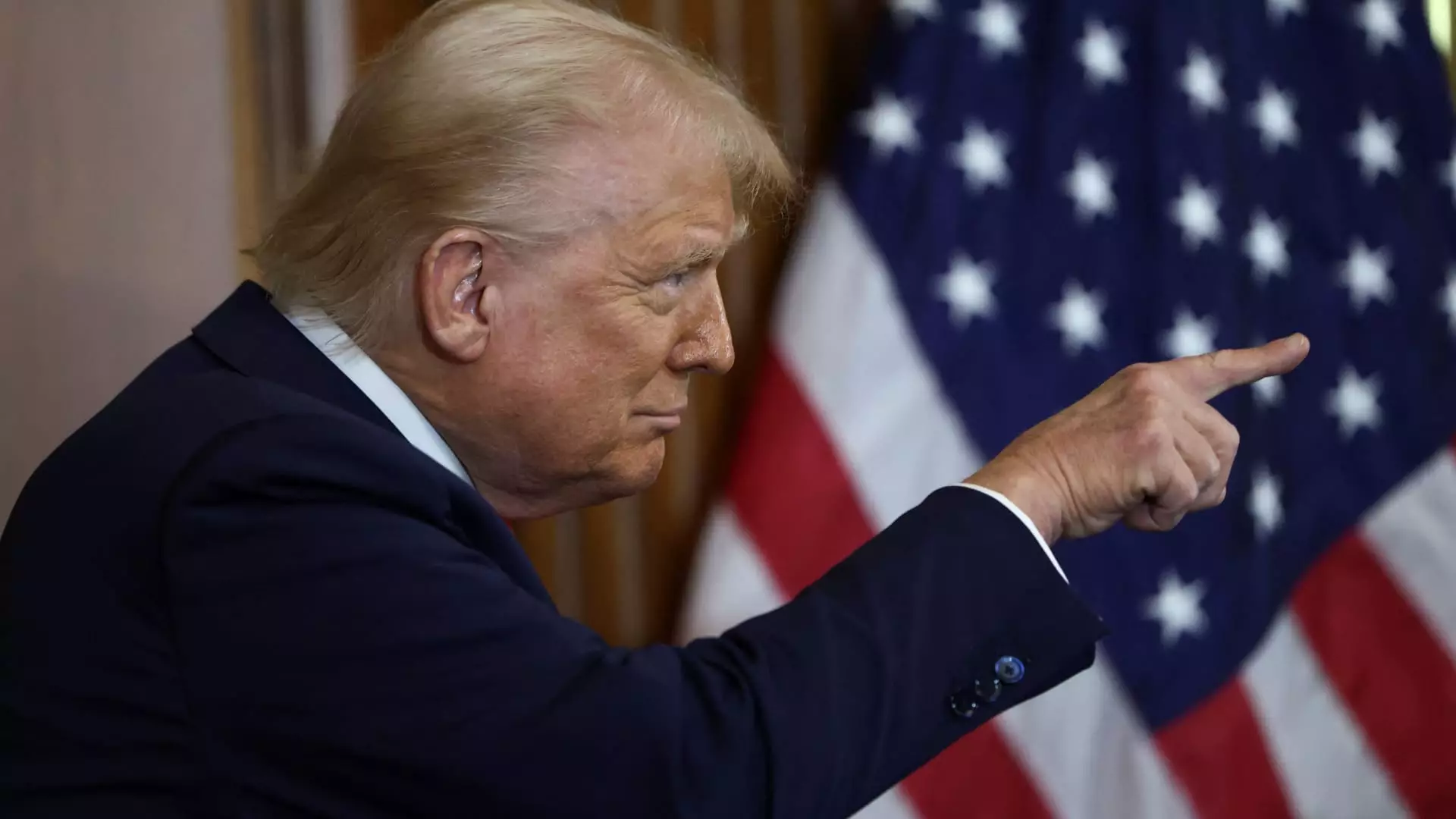In a move that many might find contradictory, former President Donald Trump has hinted at a return to higher tax rates for affluent Americans, specifically suggesting an increase from 37% back to 39.6% for individuals earning over $2.5 million. This proposal, lacking substantial support from within the Republican Party, invites scrutiny and provokes thought about the implications of such a significant policy shift. The uncharacteristic push for higher taxes on wealthy individuals raises questions about Trump’s evolving stance on economic matters and the potential ripple effects within a polarized political landscape.
The Irony of the Proposal
It’s impossible to ignore the irony of Trump’s proposed tax hike for the wealthy, particularly when contextualized against the backdrop of his previous tenure. The Tax Cuts and Jobs Act (TCJA) of 2017, championed by Trump, was a landmark policy that favored corporate giants and high earners by substantially lowering their tax burdens. Now, he’s apparently advocating for a hike at the very moment his party grapples with funding a sizeable spending package. This seemingly contradictory stance raises eyebrows, as it suggests a departure from the party’s traditional ethos, which has predominantly been grounded in tax reductions as a means to stimulate growth.
Is Trump Sincere or Strategizing?
The question that looms large is whether Trump’s latest maneuver is born of genuine concern for the socio-economic struggles of lower and middle-income families or if it’s part of a more profound strategic play. By proposing a tax hike on the wealthiest, Trump is potentially positioning himself as a populist voice within the Republican Party at a time when public opinion increasingly favors policies that prioritize equitable tax systems. His recent social media posts echo a rare moment of populist empathy, stating he would “graciously accept” a tax hike to benefit working-class Americans. But is this a moment of revelation or a mere tactic to shift focus amidst internal GOP conflicts?
Impacts on Medicaid and Tax Cuts for the Average American
If implemented, Trump’s proposal aims to preserve crucial funding for Medicaid and sustain tax cuts that benefit everyday Americans. A higher tax rate for the wealthy could theoretically help bridge funding gaps in essential services that have been jeopardized by pandemic-related expenses and economic fallout. Critics argue, however, that such an increase alone would not resolve the “pretty simple math issue” facing lawmakers, as highlighted by Natasha Sarin from Yale. Would the funds generated truly suffice to cover the multi-trillion-dollar spending expected from Congress, or would it simply serve as a band-aid on a much larger systemic wound?
Republicans at a Crossroads
This internal rift within the Republican Party reflects a critical juncture. Traditionally aligned with libertarian ideals of minimizing state intervention and taxation, the party faces calls for a more equitable approach. The contending perspectives already breed discomfort within GOP ranks; some focus on fiscal conservatism, while others lean toward populism that may intermittently embrace tax increases on the affluent. As Trump’s call for higher taxes makes waves, the party might have to reckon with a broader realignment of ideologies that could redefine its future.
Public Reception: Shifting Sands of Support
The American public appears to be wrestling with its own perspectives on taxation, especially as economic disparities continue to widen. Surveys indicate a significant shift toward supporting tax hikes for the wealthy, suggesting a growing awareness that wealth concentration compounds socio-economic issues. If Trump’s proposal captures public imagination, it could signal a profound shift in political discourse, inciting more debates around wealth redistribution and fiscal responsibility. Ultimately, how receptive Republicans are to this proposal might reflect deeper ideological currents at play—not just within their party, but also within the electorate they serve.
In the end, Trump’s proposal for a tax hike on the nation’s wealthiest citizens arrives amidst an increasingly volatile economic conversation that demands attention. The ramifications stretch far beyond mere percentages on tax forms; they delve into the heart of what it means to foster an equitable society in a capitalist framework. Whether Republicans rally behind this unexpected proposition or dismiss it as a fleeting impulse will likely shape their political identity for years to come.

